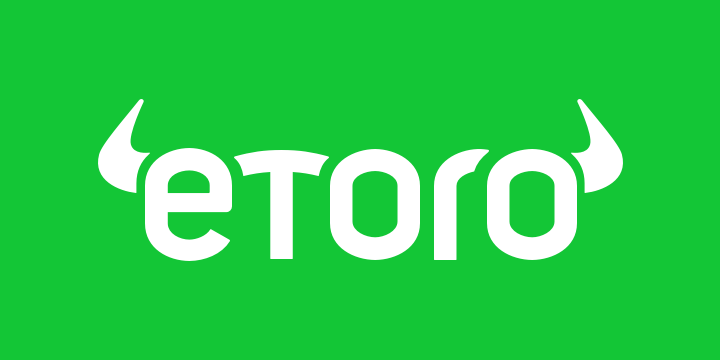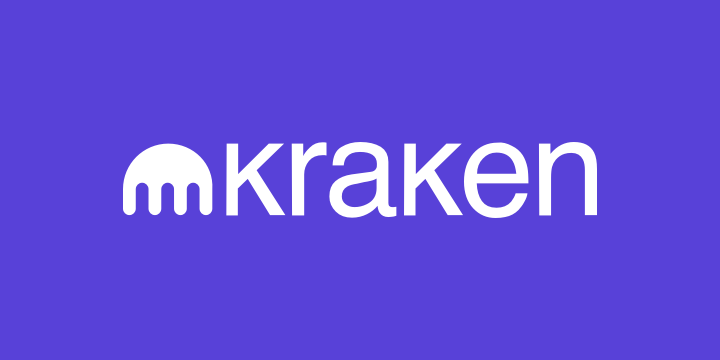How to Trade Litecoin in 2024 - Complete Guide
...
Litecoin (LTC) was one of the earliest Bitcoin spinoffs, or ‘altcoins’. It was launched by Charlie Lee in 2011 and has grown to become one of the most valuable cryptocurrencies. It’s often refered to as the digital “Silver to Bitcoin’s Gold”. Traders aim to buy Litecoin and sell it for a profit by making price predictions based on market analysis.
This guide covers how to trade Litecoin. It teachs you the techniques traders use to make price predictions using market indicators. Like any form of short-term investment, crypto trading requires you to constantly monitor the market for changes. Keeping up with new trends and developments can be quite time-consuming.
What is Litecoin Trading and How is It Different from a Standard Purchase?
Litecoin trading involves speculating on the price movements of LTC for a profit using online brokers and exchanges. Brokers offer traders derivatives, which are contracts whose values are tethered to the market value of Litecoin.
Trading in derivatives is different from buying and holding Litecoin on a cryptocurrency exchange. The latter gives you some advantages, such as the ability to acquire a loan using your LTC as collateral. However, trading derivatives is a much faster way to profit from Litecoin in the short term. Crypto brokers offer three ways for traders to take advantage of market price fluctuations:
- CFDs – A “CFD” or Contract For Difference is a financial derivative whose value is determined by the market price of Litecoin. A trader with a CFD does not own any actual Litecoin tokens. The value of the contract is instead determined by the gap between your LTC trade’s opening and closing price.
- Futures – A futures contract is a trade agreement with a set expiry date. A holder agrees to buy or sell Litecoin at a specific price on a set date in the future. It’s essentially a contract for a trade that will be executed in the future, hence the name.
- Options – Options are similar to futures, except they give the holder the right, not the obligation, to buy or sell Litecoin at a specific price on a specific date. This flexibility brings with it a cost: the trader must pay a premium for the contract itself.
Due to the speculative nature of crypto trading, it’s important to choose registered broker platforms. A reputable broker will have safeguards in place to protect your investments from scams, fraud, and theft. The services they offer may vary depending on your location. Some platforms only cater to traders in the U.S., for example. Others support multiple jurisdictions, but they may limit what users outside the U.S. can do. Keep all this in mind when you’re coming up with your trading strategy.
Novice traders often turn to mirror trading or copy trading. The concept is simple: let someone else develop a trading strategy for you by directly copying the same deals they make. It’s the easiest way to enter the market and it provides valuable educational experience for newbies.
However, it also carries risks because you aren’t getting the full picture. Skilled traders tend to have safety nets in place to cushion them from losses. Thanks to their deep pockets and wider margins, they can afford to take riskier positions. Losses that could be devastating for you as a beginner may not even register on their radar.
Where Can I Trade Litecoin?
There are many trading platforms for digital assets. We’ve made a list of some of the best ones for you to start your Litecoin trading journey.
Online Brokers
Cryptocurrency broker platforms offer traders derivative products. Derivatives are contracts whose value is tied to an underlying asset, such as Litecoin. A contract gives you the right to your original money plus any profit or loss you make when it expires. When trading with a broker, you don’t actually own a digital asset; you instead buy or sell a derivative contract that is tied to the market price of LTC.
Benefits of Using a Broker to Trade Litecoin
Broker platforms are a good option for starting cryptocurrency trading. For starters, you don’t need to buy Litecoin to get started. You can simply buy derivatives and sell them once your desired profit target is reached.
Other benefits of using brokers include the ability to use leverage trading to amplify your trade position. Some brokers offer as much as 100x leverage, allowing traders to greatly expose themselves to the market even with very little initial capital. Brokers also tend to have advanced trading tools and lower charges, making them ideal for experienced traders who want to trade in large volumes.
Finally, brokers (or at least the reputable ones) are compliant with regulatory agencies. That means greater security and protection for traders in the event of hacks, theft, or scams.
Derivatives Exchanges
When a lot of people think of crypto exchanges, they think about platforms that let you buy or sell cryptocurrencies for a fee. While that’s true, exchanges have grown to offer many of the same services users can get from broker firms, including the ability to buy or sell derivatives.
Popular Litecoin exchanges like Binance, Bitmex, and Huobi all offer derivatives, such as CFDs, futures, options.
Benefits of Using an Exchange to Trade Litecoin
Using an exchange to trade Litecoin has many advantages. For starters, exchanges allow users to buy and hold Litecoin, while broker platforms only let users buy or sell derivatives based on the price of LTC. Secondly, exchanges typically support a wide range of cryptocurrencies, giving users more options in terms of deposits and withdrawals. This also means traders will have a greater selection of trading pairs.
Exchanges are also easier to use and more geared toward novice traders, while broker firms tend to be more complex. Brokers are a better choice for veteran traders who need advanced trading tools, leverage, faster transaction speeds, and high liquidity. However, many exchanges that offer derivatives also have a lot of those features, so you can enjoy all of those benefits on a single platform. This also saves you registering for a new trading account if you have previously purchased Litecoin on an exchange.
Our Step-by-Step Guide on Litecoin Trading
Litecoin trading may sound simple on paper, but it requires a series of steps. We’ve created a guide explaining each step to help you get started.
1. Combine Fundamental and Technical Analysis
Successful trading requires information input. In crypto trading, traders rely on fundamental and technical analysis to gather data on market trends and leverage that information to forecast the direction of prices.
Fundamental analysis is all about examining financial and economic factors to evaluate the value of Litecoin. This includes:
- News – Any news concerning Litecoin can have an impact on its price. Make it a habit to visit reputable crypto news platforms and pay close attention to any news about Litecoin. Keep an eye out for new government regulations, roadmap milestones, hacks, scams, or anything that could sway traders.
- Active addresses – While not a conclusive metric on its own, the number of active addresses on a blockchain network is a good indicator of network activity. It can factor into the valuation of a digital asset.
- Mining break-even cost – Cryptocurrencies that must be mined have a break-even point. The mining break-even ratio can tell you a lot about the state of the network. Whether or not mining is profitable can factor into your overall assessment of Litecoin.
On the other hand, technical analysis examines historical market data. This includes:
- Moving averages – Traders use moving averages to smooth out trading charts and create easily decipherable trend indicators. For example, a simple moving average could take data from a 30-day period between December 2019 to January 2020 and produce the average price of LTC for that data set.
- Bollinger Bands (BB) – This is an oscillator measurer. It refers to two lateral bands between which is sandwiched a middle moving average line. The bands react to market conditions and expand when volatility is high, and contract when volatility is low. Bollinger Bands are used to measure market volatility and spot potentially overbought market conditions.
- Relative strength index (RSI) – The relative strength index is another oscillator that measures the magnitude and speed of price movements. It applies mathematical formulas to pricing data to spot oversold market conditions and evaluate Litecoin’s price on a scale of 0 to 100.
There are many more examples of analysis techniques. It’s a good idea to use a combination of both methodologies when making trade decisions, in order to account for all facets of the market.
2. Choose a Trading Strategy
All successful traders have a strategy for turning a profit. Many use several at once. Here are a few examples of popular trading strategies:
- News trading – The cryptocurrency market is very sensitive to news, and all it takes is one bad story to cause the price of an asset to tumble. News trading involves paying attention to the latest Litecoin news to anticipate and take advantage of market trends.
- Swing trading – Swing trading is an ideal strategy for beginner traders. It involves capturing price movements that happen over a few days to several weeks. Swing traders typically use a combination of fundamental and technical analyses to pick up events that might affect the market over several days.
- Trend trading – This strategy involves analyzing Litecoin’s momentum. Traders use analysis to track if the value of LTC is moving up or down and make decisions based on the trend.
- Scalping – Scalping takes advantage of those tiny price fluctuations that occur every few seconds or minutes to make quick trades that generate small profits. Do enough trades like that and you may end up with a tidy return in 24 hours.
- Hedging – Hedging is a risk minimisation strategy that involves strategically opening positions that run counter to your main trades. This allows traders to yield a profit even if a trade goes wrong.
There are many other trading strategies out there, and all of them have their pros and cons. Try out a few to find the ones that work best for your trading needs.
3. Select an Appropriate Platform for your Needs
All the trading strategies and market analysis in the world won’t matter if you don’t have the right platform for trading Litecoin.
Start by deciding whether you want to use a broker or a derivatives exchange. Even though they both provide similar services, a broker is a more dedicated trading platform geared toward experienced traders. Derivatives exchanges are easier to use, but they also allow risky trades through leverage trading.
Whatever option you pick, make sure the platform is properly registered. Unregulated platforms have a high probability of being shut down for non-compliance, and some may even be scams designed to trick unwitting traders.
4. Setting Up Your Account
Once you’ve picked a platform, the next step is to create an account. This is a fairly straightforward process that involves providing a username, password, and email address for verification.
The one additional step exchanges and brokers require is Know Your Customer (KYC) identity verification. The KYC process is a requirement by financial regulators as a measure against fraud, money laundering, and criminal activity. It involves providing a copy of your government-issued ID and proof of residency. Some platforms may even ask you to provide proof of your income source, in addition to a picture of yourself for verification
Once your identity is verified, you can finally choose a payment method and deposit fiat currency or cryptocurrency into your account to start trading. Platforms typically offer a variety of deposit methods, including direct bank transfer, credit/debit card, PayPal, crypto transfer, and others.
5. Prepare your Trading Position
The next step is to go over your trade options. Every platform has a unique trading interface, but they all share some common features, such as trading graphs, available trade options, order books, and so on.
Short or Long Position?
Going short or long depends on how the market is doing. Your position will grow in value as Litecoin’s price increases and vice versa. Opening a trade when the value is increasing is taking a long position. On the other hand, selling as the price dips is taking a short position, and allows you to speculate on downward price moves.
Shorting is a great way to make a profit in a falling market. Fundamental analysis can provide clues when the market is about to dip. Perhaps there is upcoming negative news about Litecoin, or maybe new regulation for digital currencies is about to pass. A savvy trader can take advantage of that and turn a profit. That said, shorting is much riskier than taking a long position, as markets are more prone to recovery than capitulation.
Limit or Market Order
A market order is a transaction that is executed immediately at the current market price. A limit order is executed when a trader’s minimum or maximum price limit is reached. Limit orders are great for patient traders who want better control over the price of a trade, but market orders enable snap decisions.
Trade Position Amount and Leverage
Trade position refers to the amount of money you place in an order. Some trading platforms allow users to amplify their trade position by giving them leverage. This allows buyers or sellers to control much larger positions than the amount they hold in their accounts.
Many platforms offer different levels of leverage with ratios ranging from 2x to 100x, and some services offer even higher multipliers than this. For example, if a platform offers 10x leverage, then a user can hypothetically trade $5,000 worth of Litecoin for only $500. The broker lends the trader the rest of the money. While leverage trading can be very profitable, it can also amplify your losses. You could end up losing 100% of your trading position if you’re not careful.
Risk Management: How to Decide the Right Stop-Loss and Take Profit values for your Litecoin Trade
It’s a good idea to have a risk management strategy in place to minimise your risks of loss. At a minimum, set up a stop-loss order as a safety net in case your trade goes awry. Use your analysis to determine acceptable values, or set up stop-loss orders that trigger when the market dips and goes below support levels, preventing you from losing your money.
Another alternative is trailing stop-loss orders. This is a type of order that automatically adjusts to keep up with rising resistance levels as the market trends upwards. They trail the market and continuously change your closing position to mitigate losses and maximise profits. A combination of stop-loss and trailing stop-loss orders is great for passive traders. If the market trends down, you automatically get pulled out, minimising losses and locking in profits in the process.
Review and Execute Your Litecoin Order
The final step before you place your order is to review the details one last time. Check to see you have chosen the correct order type and entered the right order amount, limits, leverage, and other factors.
Once you are confident everything is right, click the ‘Buy/Sell’ button and start your trade.
Close your Trade for Profits or Limit your Losses
Assuming you have all your ducks in a row, there is no reason why your order shouldn’t turn a profit. Depending on how you set up your order, you can either close your position manually or automatically. Traders typically use a combination of take-profit and stop-loss settings to close their position when they reach their desired profit or loss level.
For instance, when you place a limit order to sell LTC, set a slightly higher Litecoin price, and the order will be executed when the conditions are met. At the same time, enter a stop-loss setting that closes your order if the market suddenly trends down and passes a key support level.
Other Considerations
We’ve only just scratched the surface; many other factors can affect your decision when choosing a trading platform. These include security features, deposit/withdrawal methods, trading fees, trading tools, data aggregation, and more.
There are also independent factors to consider, such as how a platform has historically managed unexpected market swings, liquidity in high volume periods, or the type of features a platform makes available to traders in your location. While they may seem minor, all of these variables can factor into the success of your trades.


